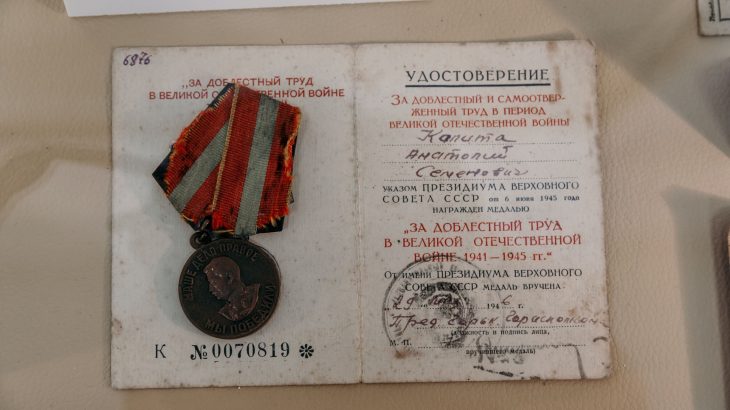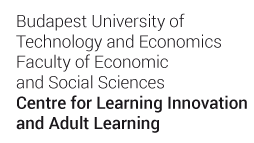We are pleased that have won the full funding of our project proposal Digitaly Signed Credentials and Open Badges in VET and HE (acronym DISCO-VET). It will start on november 1 2020 and lasts for two years, co-funded by the Erasmus+ K2 Strategic Partnerships initiative. The project is coordinated by the Budapest University of Technology and Economics. The consortium consists of 6 partners from 6 European countries, covering a wide range of expertise and experience related to the scope and the aims of the DISCO project and Erasmus+, having as well a Pan European network outreach in their activities. Partners include the Vytautas Magnus University from Lithuania, the Knowledge Innovation Centre from Malta, the Militos Consulting S.A. from Greece, the ITC Innovation Training Center from Spain and the Ogres Tehnikums from Latvia.
 We faced a challenging time in as educational professionals in 2020 as overnight the online learning became the norm from K-12 education through higher education and professional development courses. The lockdown crisis showed clearly that the content and methodological part of on-line education could much better and quicker adapt to the situation than the rigid paper based educational administration to certify and recognize those content achievements on-line in all levels. Therefore in the light of the last few months experience the next steps in this direction would evidently be the quick development of digital certification and credentialization techniques, standards, systems.
We faced a challenging time in as educational professionals in 2020 as overnight the online learning became the norm from K-12 education through higher education and professional development courses. The lockdown crisis showed clearly that the content and methodological part of on-line education could much better and quicker adapt to the situation than the rigid paper based educational administration to certify and recognize those content achievements on-line in all levels. Therefore in the light of the last few months experience the next steps in this direction would evidently be the quick development of digital certification and credentialization techniques, standards, systems.
We identified as one of the main issues that needs the attention of the professional community the credentialization, that should also keep pace with content and organisational developments, and in the light of the rapid upscaling of virtual mobility and all virtual activities around the world, credentialisation should be developed to be ready for large scale institutional use immediately.
 An early but still evolving answer to this challenge was the definition of Open Badges by Mozilla and later the IMS consortium. This platform gives great freedom to issue, display and collect different badges in the educational field with practically no limitations of the content. Following Bluebadges Scheme statistics (2018), more than 860 000 Open badges (different types) were issued and 2,35 million badges were earned only in UK so far (no global statistics yet), certifying simple skills as well as very complex skillsets, a few days’ conference participation, technical compatibility all through Student excellence. UNESCO already have claimed: “Open badges are one of the promising approaches to online credentialing, which can exist alongside and complementarily to traditional credentials.” Parallel to this global movement, the European Union started to develop its own approach regarding digital certification, on the fundaments of already existing standards like ECVET and the widely used Europass. This new initiative, called Europass Digital Credentials, aims at supporting transparency of skills and qualifications. The initiative is still in development.
An early but still evolving answer to this challenge was the definition of Open Badges by Mozilla and later the IMS consortium. This platform gives great freedom to issue, display and collect different badges in the educational field with practically no limitations of the content. Following Bluebadges Scheme statistics (2018), more than 860 000 Open badges (different types) were issued and 2,35 million badges were earned only in UK so far (no global statistics yet), certifying simple skills as well as very complex skillsets, a few days’ conference participation, technical compatibility all through Student excellence. UNESCO already have claimed: “Open badges are one of the promising approaches to online credentialing, which can exist alongside and complementarily to traditional credentials.” Parallel to this global movement, the European Union started to develop its own approach regarding digital certification, on the fundaments of already existing standards like ECVET and the widely used Europass. This new initiative, called Europass Digital Credentials, aims at supporting transparency of skills and qualifications. The initiative is still in development.
In this rapidly evolving digital transformation, gaps can be identified and parallel developments have to be bridged. OEPass credential collection and research (see attached) shows that the most populated area of standardised digital credentials in Europe are still open badges, that are claimed for one or more specific skills. Course credentialization has already started by different MOOC (custom) credentials, and a micro-masters’ initiative is under development by EADTU. Our research (see attached) regarding the first open badge standards shows that apart from their use in HE, badges in short-term VET and further educational courses are rapidly emerging.
 As a consequence of the courses and content being open, the market is quite dispersed and invisible, and it is not easy to search and find issued course certifications, nor to classify them by any EU or national typology. It is partly due to the relative large number of issuers with only a small number of displayers (like Badgr, Badge Craft, or Open Badge Factory) to manage them.
As a consequence of the courses and content being open, the market is quite dispersed and invisible, and it is not easy to search and find issued course certifications, nor to classify them by any EU or national typology. It is partly due to the relative large number of issuers with only a small number of displayers (like Badgr, Badge Craft, or Open Badge Factory) to manage them.
The objective of our project on one hand is to building on the possibilities of the open standard of Open Badge 2.0 to work out a meaningful VET and AE data structure of course and content typology (VET level, VET sector, target, length, etc.). It is to be based on EU VET standards, on the OEPass research findings, on the newly developed EDCI (Europass Digital Credentials Infrastructure) standards for interoperability, and on the partners own national standards and classifications. The result will provide a grid of extra metadata accompanying a Badge. This system would enable better mapping and manageability of their badges for VET and HE providers and other stakeholders.
Another objective of the project is to develop an extendable pilot open source sample displayer platform (repository), where first the partner organisations and later many other educational providers and learners alike could collect (issue, earn, store, view) their badges with more meaningful and more comprehensive searching possibilities, than for example USA based Badgr is offering now. Owning the displayer repository by consortium partners would provide us with the necessary freedom and control over the changes for us to be able to bridge it to EDCI compatibility, as well as the rights to further develop the software.
Check back in November to learn more details about the development and the end results.




